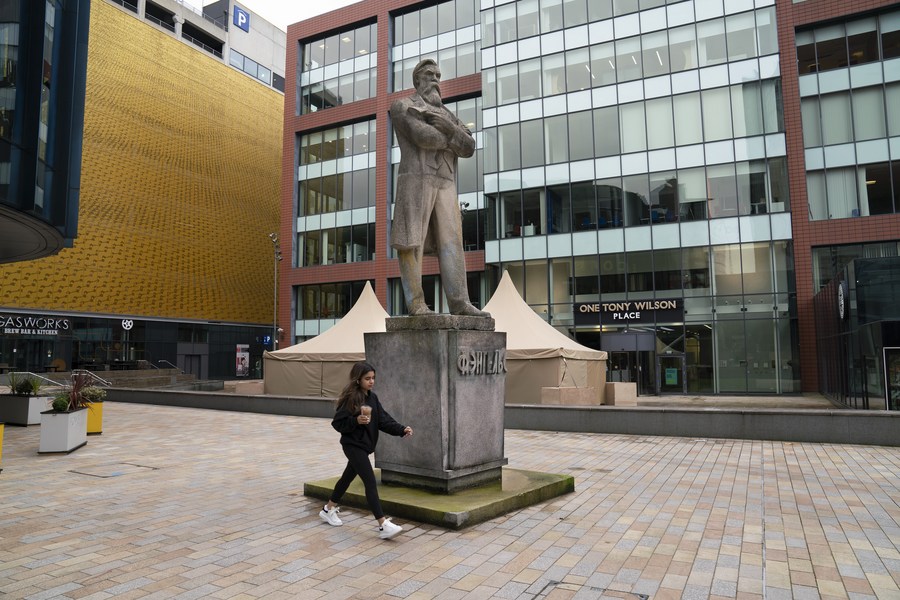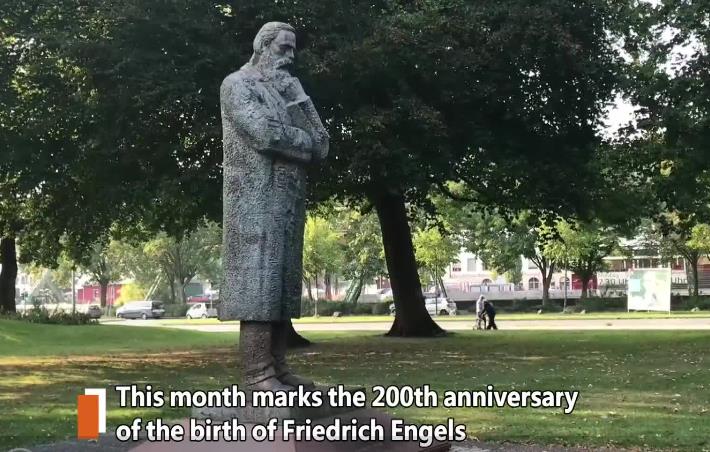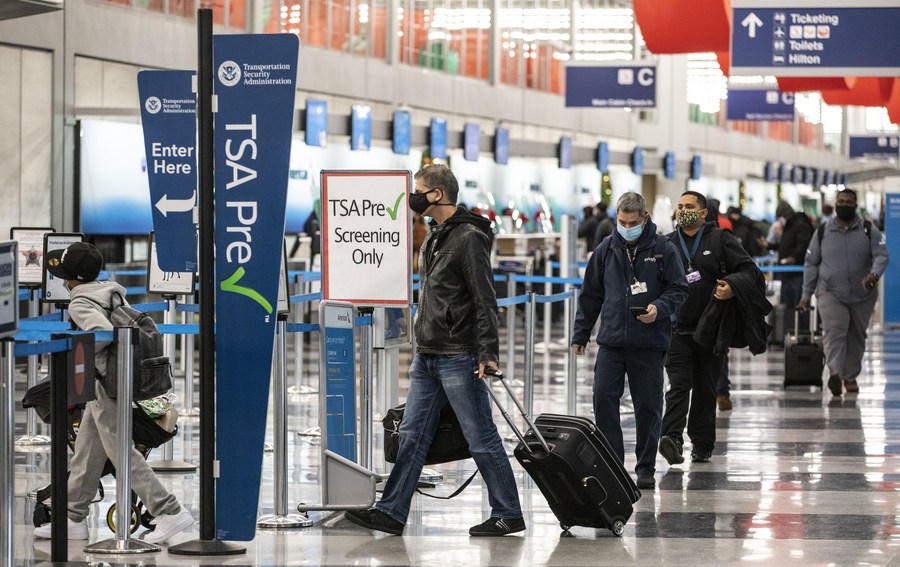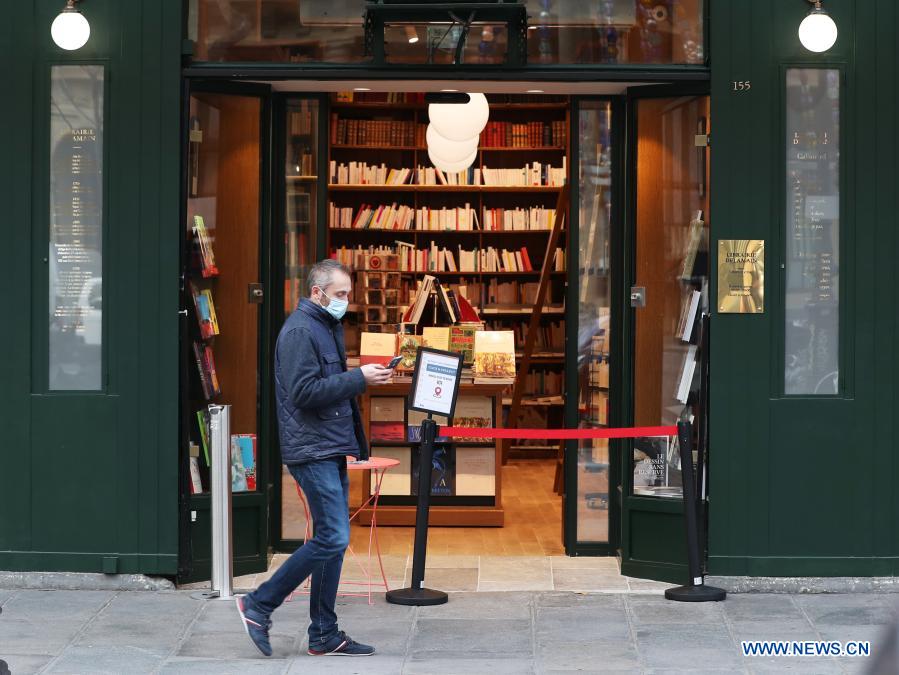-- Since the financial crisis in 2008, there has been a renewed interest in Marx and Engels amid deepening social divisions and sharpening of social conflicts.
-- Engels has contributed substantially to the Marxist theory, not least with his acute observation of workers' condition and exploitation of capitalists.
-- Instead of utilizing the theory rigidly, over the past century, the CPC has combined the fundamental principles of Marxism with the reality of China, working miracles from revolution to the opening up.
LONDON/BERLIN/BEIJING, Nov. 26 -- In downtown Manchester, England, frock-coated and bearded Friedrich Engels crosses his arms over the chest, contemplating at the heart of a posh, modern business district.
The statue was installed three years ago in the cradle of the Industrial Revolution, which, along with much of Europe, had witnessed the darkest, most inhuman side of capitalism.
Nicknaming himself "the second fiddle," Engels worked arduously with his confidant Karl Marx. The pair explored the truth and rules behind the capitalist system, concluding that the capital was governed primarily by the pursuit of profit with no regard for human life. The groundbreaking theories changed the course of history in the 19th century.

Photo taken on Nov. 17, 2020 shows a statue of Friedrich Engels in Manchester, Britain. (Photo by Jon Super/Xinhua)
Two hundred years after his birth, the world Engels is gazing at from his pedestal is again undergoing unprecedented changes: the most serious pandemic in the past century, the worst global economic recession since the Great Depression of the 1930s, and the ever-pronounced social conflicts since the financial crisis, which have prompted a second thought about the role of capital and a complete rethink of governance.
It is clear that the far-reaching influence of Marx and Engels' contribution to the world is not confined to their age. Rather, their insights could well shed much light on the future path the world needs to embark on at a time of profound uncertainty.
A THEORY STILL RELEVANT
Engels was born into an affluent capitalist family in a baroque house in Wuppertal, a town at the heart of western Germany's Ruhr industrial region, where he spent his childhood and youth.
Wuppertal labeled 2020, the bicentenary of his birth which fell on Nov. 28, "the Year of Engels." Posters featuring a young spirited Engels, renowned as "a thinker, a doer and a Wuppertaler," are seen across the city.
One can't help but wonder why Engels is still widely remembered in Germany, where Marxism is not considered a mainstream school of thought, and also in Manchester, where the statue, brought to Britain from a village in eastern Ukraine through Europe, was erected in his honor.













